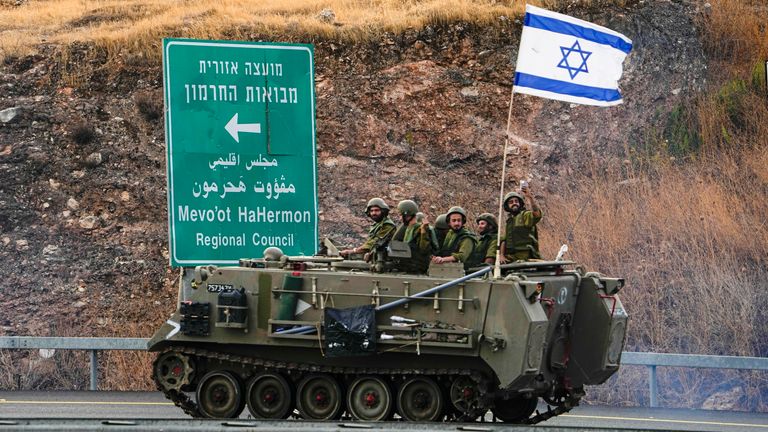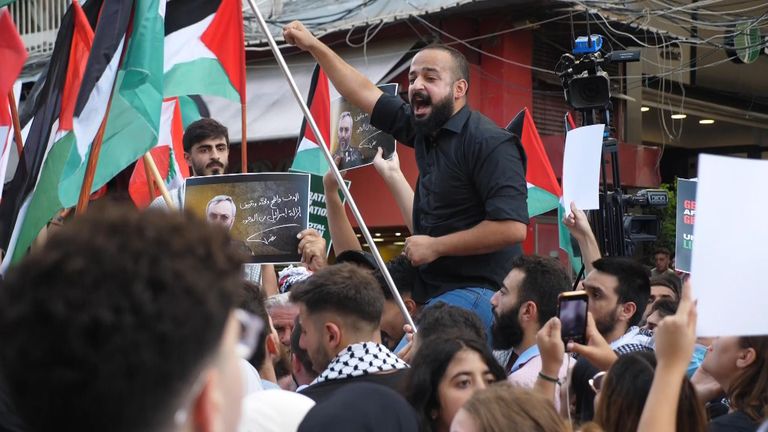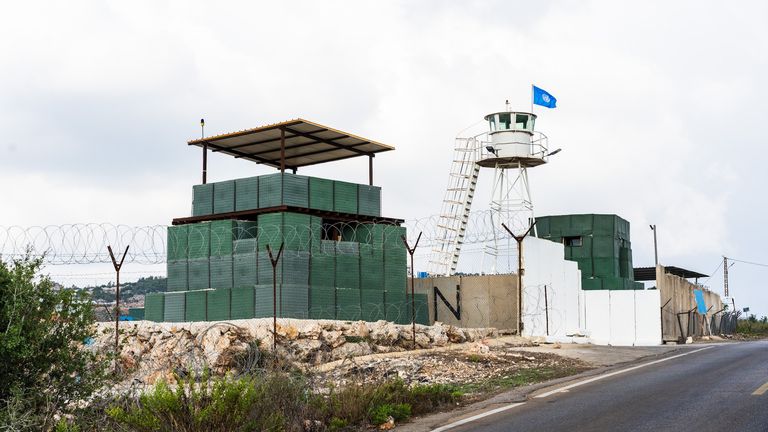Israel’s northern border remains the most tense it’s been since the “Summer War” of 2006 when Hezbollah and Israel fought a destructive war for 34 days.
The question now is are we about to see another major conflict, which would have huge regional and global implications?
Israel is certainly preparing for a second front opening up – armour is on the move in the northern sector and positions are being reinforced – that is to be expected considering the situation.
Hezbollah sources also say they are readying for the worst – there have already been a number of clashes and exchanges of fire across the border.
No electricity, water or fuel for Gaza until hostages freed – follow live conflict updates
Worrying times, but not necessarily a precursor to war.
What we are seeing can be interpreted in a few ways. It’s hard to choose which one is right at the moment.
On the one hand, it could simply be a show of solidarity and a way of keeping Israeli forces busy in the north, but stop short of a major escalation.
It could also be a holding pattern before a major attack, where the decision to launch may be contingent on how far Israeli forces go in Gaza.
Hezbollah, although a Shiite group – Hamas is Sunni – has long aligned itself with the Palestinian cause.
It fits its anti-Israel message credentials.
Both groups are funded by and are proxies of Iran, although each has autonomy and its own areas of interest.
Hezbollah is by far the more powerful militant group.
It’s also armed to the teeth with sophisticated weapons and is well-trained.
Its fighters are battle hardened, having fought extensively to save the skin of Bashar al Assad in Syria.
The catalyst for this latest stand-off is, of course, Hamas’s brutal massacre of Israeli civilians and soldiers, but the enmity between the two sides goes back a long way.
What is Hezbollah?
Hezbollah, which means “Party of God” in Arabic, was forged in Lebanon in 1982 to fight and kill invading Israeli forces.
It openly calls for the destruction of the “Zionist regime in Palestine” and is deemed a terror organisation by most Western powers.
Hezbollah and Israel have been fighting a shadow war for many years since 2006 – primarily in Syria.
Will Hezbollah go to war?
If another war broke out, there’s good reason to think it would be far worse than the last one; and for that reason it may be avoided, with both sides holding back, as a way of containing clashes just to the border region.
Hezbollah has lost huge numbers of fighters in Syria.
Its actions there were also hugely unpopular in the Arab world, damaging its reputation.
If it did overtly join the fight now, it could help lift it from the pit of sectarianism.
But the risk of doing so is huge. Hezbollah has lost a great deal of support in Lebanon and the country can ill afford another war with Israel.
Read more:
Satellite images show Gaza reduced to rubble
Irish-Israeli woman missing after Hamas attack confirmed dead
Most Lebanese are reeling from the effects of a profound economic crisis – a conflict initiated by Hezbollah would have very little support.
The risk of accidental escalation though, or miscalculation, is very real.
The last war started after Hezbollah launched a cross-border raid killing eight Israeli soldiers and kidnapping two more.
Its leader, Hassan Nasrallah, was surprised by Israel’s ferocious response – the war started as a result of a misunderstanding over the rules of engagement.
Hamas’s rampage has rewritten the rules of engagement on Israel’s southern border.
The letters are still being spelled out on the page in the shape of bombs being dropped by the Israeli Air Force’s war planes over Gaza.
The same may be true here on the Israeli-Lebanese border – the scope to get things wrong and misread the situation is huge.



